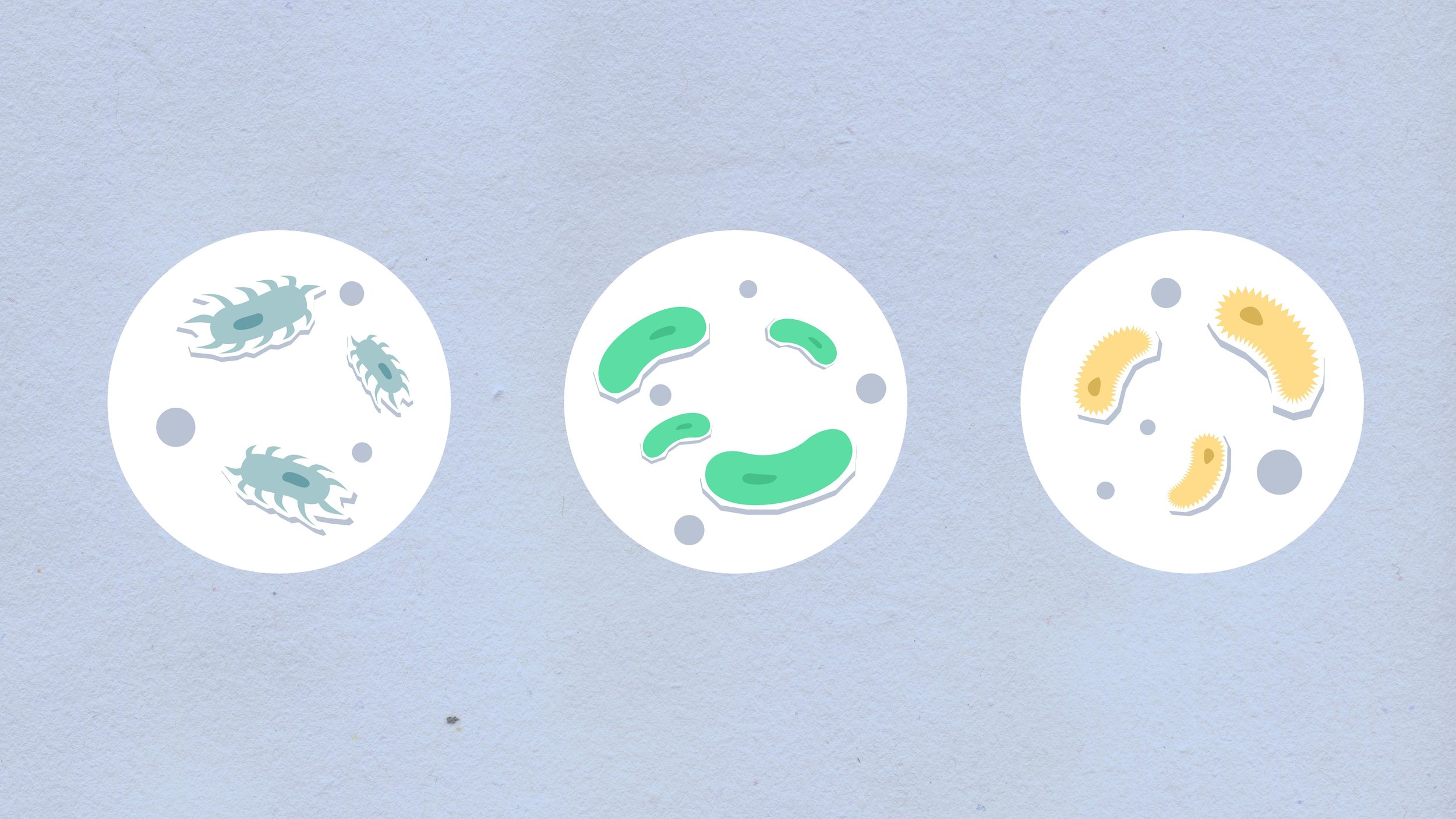What is the Gut Microbiome? Good Gut Bacteria & Your Health
As an non-diet, Health-At-Every-Size (HAES®) Licensed Dietitian Nutritionist, I believe in promoting well-being without fixating on weight. Central to this belief is understanding how our bodies work to maintain health, and one of the most fascinating aspects of our physiology is the gut microbiome. Today, we’ll cover what the gut microbiome is, how it affects our health, and why cultivating a balanced microbiome is essential—without resorting to restrictive diets.
What is the Gut Microbiome?
The gut microbiome is a community of trillions of microorganisms that reside in our digestive tract. This ecosystem is incredibly diverse, with over a thousand different species of bacteria alone, each playing unique roles in digestion, immune function, and even mental health.
Think of your gut microbiome as a bustling city. Just like a city needs a balance of different services to function smoothly, your body needs a balanced microbiome to maintain overall health. When the gut microbiome is in harmony, it's like the city is thriving. But when it’s out of balance, it’s like a city struck by chaos, leading to potential health problems.
The Science of “Good” and “Bad” Gut Bacteria
In the world of the gut microbiome, not all bacteria are created equal. We often hear about "good" and "bad" bacteria, but what does that really mean?
Good bacteria are the beneficial microbes that help keep our gut functioning optimally. They aid in digesting food, producing essential vitamins (like vitamin K and some B vitamins), and protecting the gut lining from harmful invaders. They also play a crucial role in regulating our immune system and reducing inflammation.
Bad bacteria, on the other hand, are those that can cause harm if they overgrow or if our immune system is compromised. Some bad bacteria can contribute to infections, inflammation, and even diseases like irritable bowel syndrome (IBS) or inflammatory bowel disease (IBD). However, it’s important to remember that “bad” bacteria aren’t inherently evil; they’re just problematic when they become too dominant or when the balance of the microbiome is disrupted.
The key to a healthy gut is maintaining a balance where the good bacteria outnumber the bad, keeping everything in check. And remember: although there are good and bad gut bacteria, there is no such thing as good and bad foods. This is perpetuated by toxic diet culture.
How is the Gut Microbiome Affected?
Several factors can influence the composition of your gut microbiome:
What You Eat: The foods you eat directly impact the diversity and balance of your gut bacteria.
Antibiotics and Medications: While antibiotics can be lifesaving, they don’t discriminate between good and bad bacteria - both get wiped out. Frequent or unnecessary use can disrupt the microbiome, leading to imbalances.
Stress: Chronic stress can negatively affect your gut microbiome by altering its composition and promoting inflammation. This is another reason why managing stress is crucial for overall health.
Lifestyle Factors: Sleep, physical activity, and even where you live (urban vs. rural environments) can influence your gut microbiome. Prioritizing a balanced lifestyle is essential for maintaining gut health.
How to Support Your Own Gut Microbiome
As someone who follows the HAES® approach, I want to emphasize that you don’t need to follow restrictive diets or obsess over “cleansing” your gut to maintain a balanced microbiome. Instead, consider these practical tips:
Embrace Diversity: Eating a variety of foods, flavors, and textures is the number one way to support a strong gut microbiome. Diversity is key!
Make Friends with Fiber: Fiber is essentially the food for your gut bacteria—it keeps them nourished and thriving. It also helps keep things moving for more regular bowel movements, another important part of gut health.
Get Moving: Physical activity (even walking) can increase the diversity of gut bacteria and also help promote the development of good bacteria. It also increases your gut contractions, meaning your gut can empty more effectively (think: bowel movements).
Stay Hydrated: (This is probably a no-brainer!) Adequate hydration helps break down food, keep things moving, maintain your gut lining’s protective barrier, and aid in nutrient absorption.
Be Mindful: Mindfulness is a really practical way to reduce stress. There are a variety of practices that work for people; deep belly breathing (aka diaphragmatic breathing) is one easily accessible practice that can help in the moment.
Get Adequate Sleep: When you don’t get enough sleep, your hormones can become unbalanced. Cortisol (our stress hormone) can rise, increasing the risk of intestinal permeability, and our hunger hormone (ghrelin) can get dysregulated, too. Adequate sleep allows the time your body needs to ensure these systems stay on track.
If these suggestions seem rather basic and “thanks, Captain Obvious”, there’s a reason for that - these are foundational behaviors that support countless areas of your overall health. I want you to see that you don’t always need the latest trending supplement or a quick-fix tip from some social media “expert” to support your gut microbiome. Simple, foundational behaviors can go a long way and inherently provide additional health benefits too. If you have unresolved digestive issues, we need to explore what’s causing them, but a diverse diet, combined with proper hydration, movement, stress reduction, and sleep, are behaviors that will benefit your gut microbiome and overall well-being. Sounds like a win-win to me!
If you’re wondering why “Probiotics” didn’t make the list, here’s why:
Probiotics can be helpful in some situations, but they’re only one piece of the larger digestive health puzzle. In certain health conditions, such as small intestinal bacterial overgrowth (SIBO) or compromised immune systems, they can actually make things worse. Probiotics have their place—such as when antibiotics have to be taken—but they’re not a “cure-all,” nor are they my first go-to for supporting your gut microbiome.
Embrace Your Gut Microbiome
Your gut microbiome is a dynamic and essential part of your body, influencing everything from digestion to mental health. By understanding how it works and how your lifestyle affects it, you can take steps to support a healthy balance without resorting to restrictive diets. Remember, health is about more than just weight or eating “perfectly” — it’s about feeling good in your body and nourishing it with care and compassion.

